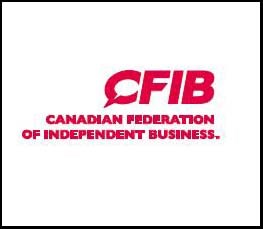Recently, the Canadian Federation of Independent Business (CFIB) released its latest monthly Business Barometer®, which reveals optimism among small business owners in Saskatchewan increased again in January to an index of 58.7, up from 56.3 in December, remaining above the the national average index of 54.3.
“For the second consecutive month, Saskatchewan’s Business Barometer Index gained more than two points in January to reach 58.7 – a better reading than most of 2015,” said Marilyn Braun-Pollon, CFIB’s Vice-President Prairie & Agri Business. “Full-time hiring plans continue to be weak with 15 per cent of owners planning to cut back over the next months, while only 13 per cent expecting to add staff. However, 48 per cent of Saskatchewan business owners report their businesses are in good shape — still good compared to the rest of the country.”
“We’re encouraged by recent comments by Premier Wall stating the government is not interested in hiking taxes to address the province’s fiscal challenges. This is the right message to send to Saskatchewan’s job creators,” added Braun-Pollon. In fact, a recent CFIB pre-budget survey found 73 per cent of Saskatchewan small business owners support further reducing the size of government and 71 per cent support further spending reductions as ways to help balance the provincial budget. Only seven per cent of respondents support increasing provincial taxes to collect additional revenue.
This is in stark contrast to Alberta’s index of 28.8, which after a significant dive in optimism in December, saw another drop of more than two full points — now the lowest reading ever recorded for CFIB’s Business Index. “To make matters worse, the Alberta government is introducing a number of major policy changes, including hiking personal and corporate income taxes, putting Alberta on the path to a $15 an hour minimum wage, and introducing a carbon tax on pretty much everything in the economy,” noted Braun-Pollon.
A free-falling dollar and the decline of oil have driven Canadian small business confidence levels to new post-recession lows in January as CFIB’s national Business Barometer® Index dropped to 54.3, about 10 points below the level associated with normal economic growth.
“We’re still caught in the throes of the fallout from the flailing resources sector that’s been sending Alberta spiraling downward and dragging the rest of the country along with it,” said Ted Mallett, CFIB’s chief economist. “The weak dollar is also sinking confidence — this month saw a record response (38 per cent) in businesses feeling squeezed by currency-related costs.”
Optimism dropped three points in British Columbia to 62.8. Alberta set yet another Barometer® record low, falling to 28.8, far and away the weakest in the country and 26 points below their score in January of 2015. Saskatchewan rose two points to 58.7, while Manitoba fell five points to 61.4. Ontario dropped to 58.4, its lowest mark since 2013 and well behind Quebec, which saw a two point jump to 61.2, one of its best readings since 2013. Newfoundland and Labrador’s slipped to 63.2. Nova Scotia fell two points, but its 69.0 mark is the strongest in Canada by far. New Brunswick’s confidence rose to 62.8. Prince Edward Island fell a point to 60.3. Results and the full report are available at: www.cfib-fcei.ca/english/barometer
Highlights of the Saskatchewan Business Barometer for January:
• 48% of businesses in Saskatchewan say their overall state of business is good (40% nationally), 13% say it is bad (14% nationally).
• 13% of Saskatchewan businesses plan to increase full-time employment in the next 3-4 months (19% nationally) and 15% plan to decrease employment (12% nationally).
• Insufficient domestic demand remains the main operating challenge (41%); followed by the shortage of skilled labour (33%).
• Major cost pressures for small business include: tax, regulatory costs (49%), wage costs (44%) fuel/energy costs (40%) and insurance costs (40%).



